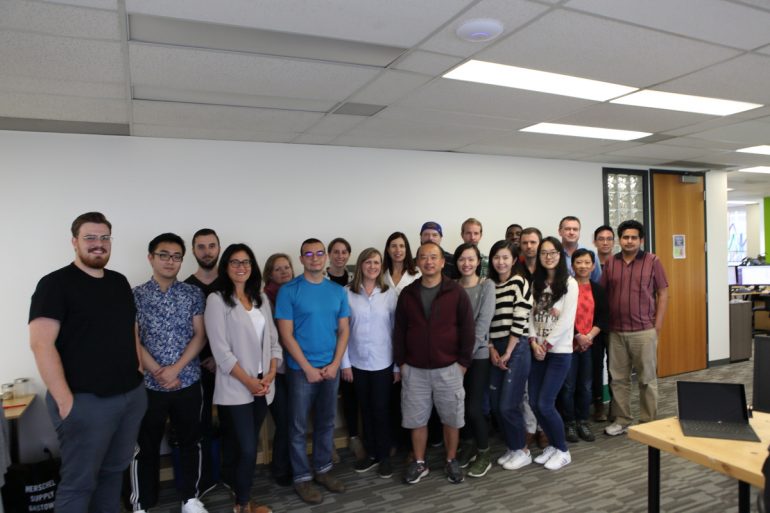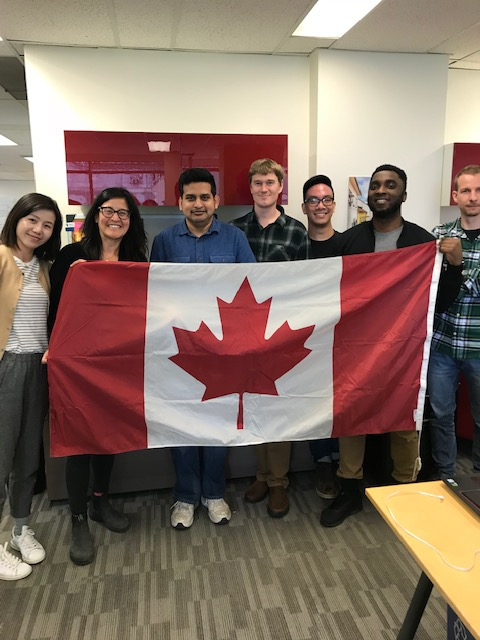As part of a regular series powered by Microsoft, BetaKit interviews prominent Canadian CTOs speaking earnestly on the biggest challenges they face in their role, as well as future technology predictions in their space.
Lendified CEO Monique Morden and VP engineering Joe Finneran know that building a startup requires wearing many hats, but the one element that the growing FinTech startup can’t skimp on is technological scalability and security. However, getting to scale is about more than in-house technology and ‘hiring the best talent’. Lendified takes a unique approach, focused on partnerships and investing in retention over recruitment.
Moving fast (without taking shortcuts)
“As a small company, you can’t build everything from scratch,” said Finneran. “You’d never get anything done. We get a lot with [Microsoft] Azure without having to build it out [ourselves].”
Finneran recounted previous companies he’s worked with that try to build everything in-house, whether for pride or security reasons, noting that the large number of people necessary was cumbersome for those organizations. Summing up those experiences versus leveraging Microsoft’s Azure technology for Lendified’s infrastructure, Finneran said that if the company had to build out everything itself, the FinTech startup would “get to market a lot slower.”
“If you sprint at 100 miles per hour, you’re going to burn out.”
Morden added that her experience as a serial entrepreneur gave her the “battle scars” to prove out the hypothesis that high-quality technology partnerships allow a company to “keep [multiple] plates spinning” while also ensuring secure and scalable technology.
In Finneran’s mind, the most crucial part of scalable technology infrastructure from a mature partner is that ability to build on top of it, making growth easier. For Morden, coming from a sales background as a founder, scalable tech infrastructure means the ability to focus on what the market needs instead of rebuilding technology at every level of growth.
Talent retention over recruitment
Having a mature technology partner, though, is not a ‘get out of jail free’ card letting startups ignore the daily concerns of team and culture. For both Finneran and Morden, retention through team culture is a top priority.
Lendified operates in two high-competition talent markets—Toronto and Vancouver—while trying to build a global business loan platform. A mission that ambitious needs not only great talent, but for that great talent to stick around. This lesson, having been learned the hard way from past experiences, led Finneran and Morden to firmly believe that a happy team is one that’s both more productive and retainable.
“Losing one or two people could be ten percent of [any specific] team, and they could have key skills,” Finneran explained. “[It] can be incredibly disruptive.”
For Morden, the way to keep retention high is through a culture that respects work-life boundaries.
“I don’t send emails to team members over the weekend unless there’s a huge fire,” she said. “I’ve been in organizations where that’s the case and you stress and burn people out, and it trickles [down] to your team.”
“You can’t say you’re on the clock 24/7,” added Finneran. “We try to get the most from people out of a standard work day, which leads to happier people, and happy people are more productive. Happy people stay.”
Focusing on retention and keeping employees happy so they can deliver more is the second piece to what Finneran called the “virtuous cycle” of high-quality technology with fewer emergencies to deal with. A scalable technology infrastructure combined with a happy, productive team means a high-quality product. And, as Finneran put succinctly, a “high-quality product doesn’t go wrong at 4 a.m. on a Sunday.”
Tech is a race, but it’s a marathon
Given Lendified’s focus on culture without compromising quality, it’s understandable that both Morden and Finneran caution tech leaders at big firms to verify if they really are up for the challenge before they join a startup.
“Not everyone can make that change,” cautioned Morden. “It’s about executing. Large companies have ideas people. But if you can’t execute, it means nothing [in a startup environment].”
Execution, though, is not the only thing a would-be CTO should prepare for before joining a startup. Ultimately, said Morden, startups are about building for the long term despite all the short-term pressures.
“Tech is a race, but it’s a marathon,” she said. “If you sprint at 100 miles per hour, you’re going to burn out.”



